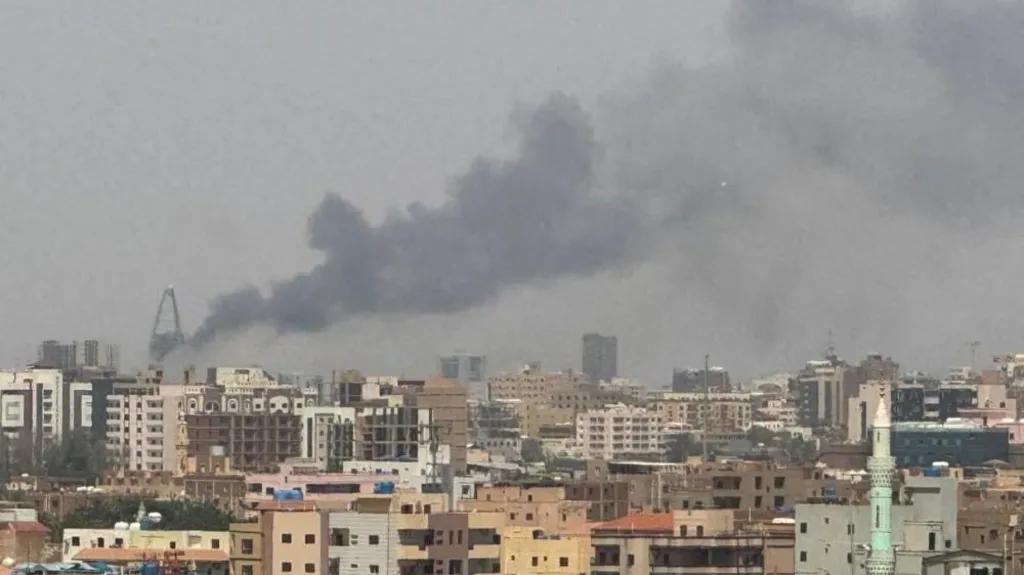Sudan’s Military Staunchly Rejects Ceasefire Amid Ongoing Conflict
3 min read
Sudan's army launched a new attempt to retake Khartoum last week

Sudan's army launched a new attempt to retake Khartoum last week
In a defiant stance, a senior Sudanese general has declared that the army will continue its military offensive, despite ongoing international efforts to negotiate a ceasefire in the 17-month-long civil war. Assistant Commander-in-Chief Lt. Gen. Ibrahim Gabir emphasized that peace talks would not deter the army’s operations aimed at regaining control of the capital, Khartoum, currently held by the paramilitary Rapid Support Forces (RSF).
Since April 2023, when tensions between the army and RSF escalated, Sudan has descended into a humanitarian crisis, with over half the population facing food insecurity and millions displaced from their homes. In a recent interview with the BBC, Gabir suggested that the Sudanese authorities had engaged in arms dealings with Iran, while simultaneously denying the existence of famine in the country.
“The army will not stop for peace talks,” Gabir asserted. He reiterated the army’s demand for the RSF to withdraw from occupied territories, urging the international community to exert pressure on the militia to cease hostilities. “I am more confident now that the army has the momentum,” he stated.
Recent diplomatic efforts to broker peace have faltered, as acknowledged by U.S. Special Envoy for Sudan, Tom Perriello, who described the situation as “extremely dire.” Speaking in Nairobi, he expressed concern that those capable of halting the violence seem more inclined to escalate it. Despite this, Perriello noted a slight improvement in humanitarian access, with hundreds of aid trucks finally reaching previously inaccessible regions.
For months, the army restricted aid shipments through a crucial border post controlled by the RSF, located between Chad and Darfur. However, in August, an agreement was reached to allow aid deliveries to resume, with the RSF committing to facilitate access in areas under its control. Gabir countered allegations that the army was hindering humanitarian efforts, citing the number of visas and permits issued to aid organizations. He accused the RSF of looting humanitarian supplies and obstructing aid delivery to the besieged city of El-Fasher in North Darfur.
Despite a report from a UN-backed expert group indicating famine conditions in the Zamzam displacement camp near El-Fasher, the Sudanese government has refrained from officially declaring famine. Such a declaration could trigger a UN Security Council resolution allowing international agencies to deliver aid across borders.
The army’s focus on the Darfur border stems from its belief that the RSF is receiving mercenaries and advanced weaponry, particularly from the United Arab Emirates (UAE). Gabir claimed that the RSF’s access to sophisticated arms significantly alters the dynamics of the conflict. While the UAE denies supporting the RSF, the UN asserts credible evidence of such involvement, corroborated by a recent investigation from the New York Times and findings from Human Rights Watch.
In discussing potential weapons purchases, Gabir acknowledged that while Iran could supply arms, it requires cash payments that the Sudanese government currently lacks. “Iran will not give you any weapons unless you pay in cash,” he explained, affirming the government’s right to engage with various nations.
When pressed about allegations of war crimes leveled against the army in a recent UN report, Gabir insisted that while individual soldiers might commit crimes, the army as a whole cannot be labeled as criminal. He recognized the complexity of the conflict, stating, “The Sudanese army are not angels,” but maintained that accountability should focus on individuals rather than the institution.
As for the war’s duration, Gabir refrained from making predictions, although a Sudanese defense official drew parallels to the United States’ two-decade-long conflict in Afghanistan. Historical context suggests that previous civil wars in Sudan have lasted many years, with the Sudan War Monitor noting that the expansive geography and size of the warring factions complicate a swift resolution.
Ultimately, Gen. Gabir conveyed a resolute vision for Sudan’s future, declaring, “Sudan will conquer, and Sudan will be rebuilt.” This determination underscores the complexities of the ongoing conflict and the deepening humanitarian crisis facing the nation. As diplomatic efforts continue to stall, the hope for peace remains elusive in a country ravaged by war.